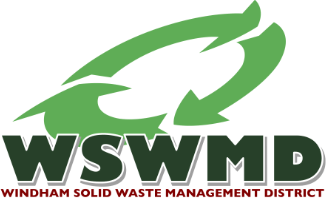An access Sticker or Day Pass is NOT required to dispose of appliances Most regular household appliances: Dryer, humidifier, microwave, refrigerator, stove, washing machine, dishwasher, convection oven Freon-containing devices: Air conditioner(window, portable, and stand-alone), dehumidifier, freezer, heat pump, refrigerator, stand-alone cooler, water cooler Rates will be higher for commercial appliances (starting at $50/ case-by-case basis) WSWMD Transfer […]
A-Z Disposal Guide
Wondering what to do with?… Search our handy A-Z Disposal Guide to find out how to properly dispose of (or recycle) most common household items.
Syringe Drop-Off Program
WSWMD will collect your needles/syringes/sharps for free for proper disposal during regular business hours. No access sticker is required Home-generated sharps, syringes, and needles- (includes glucose sensors, EpiPens, & other meds that contain embedded needles) To be safe and legal, dispose of home-generated sharps, needles, and syringes in this manner: Place sharps in an empty, rigid plastic container, such as a […]
Hazardous & Universal Wastes
Windham Solid Waste Management District is your location to dispose of hazardous and universal waste products safely. Household Hazardous Waste (HHW) Depot (Resident drop-offs- open seasonally May through October) Hazardous Waste Disposal for businesses and institutions Remote HHW Collections No need to wait for May! Find out about year-round special recycling for: Paint Motor oil […]
Resale & Consignment Shops
Resale, Thrift & Consignment Shops There are several local consignment stores in the District where you can bring clothing and other items for reuse. Please check with the individual businesses for a complete listing of items they take. Check your local community for “reuse, thrift, secondhand” or “consignment” shops. Check out our list below: Boomerang 12 […]
Batteries- All Types
Vermont bans the disposal of rechargeable and lead-acid batteries in the trash! Many types of batteries contain hazardous materials and may become hazardous waste when disposed of IMPROPERLY. Most* battery types are accepted at WSWMD for recycling, except for EV & E-bike batteries. Please bring them to the scale house upon arrival. Access Sticker or […]
Computers, TVs, & Other electronics
Vermont E-Cycles In Vermont, computers, televisions, and many other electronics, also known as “e-waste,” are banned from disposal in the trash or as scrap metal. To have e-waste properly handled, Vermont passed an “Extended Producer Responsibility” (EPR) law that requires manufacturers to create, or pay for, an effective system to recycle the wastes throughout the […]
Shredded Paper
Shredded paper can be recycled at all recycling drop-off locations or in your curbside recycling container. Please store the shredded paper in a paper bag or a tightly tied plastic bag. If you choose plastic, opt for the clearest bag possible, allowing for easy separation from other recycling materials. This is the ONLY product permitted […]
Motor Oil (Used)- Clean or dirty
Used motor oil is banned from Vermont landfills. Effective 10/1/24, used motor oil is NO LONGER collected daily. An access sticker is NOT required; however, there will be a fee. Oil can only be dropped off on Tuesdays; we will not accept motor oil any other day of the week. Please bring your motor oil, […]
Clothes & Textile Recycling
WSWMD has partnered with Apparel Impact to close the loop on textile recycling! Three (3) bins are located to the left as you enter the gate and bins are only accessible when the transfer station is open. An access sticker is not required to utilize the clothing bins. WHAT WE ACCEPT Anything you can wear, […]
LED lightbulbs
LED lightbulbs are the newest technology for lightbulbs. Available in screw-in types, as well as short tubes, U-shaped, circular, and long tubes they have now become the bulb of choice in lieu of fluorescent lights. WSWMD will accept LED lightbulbs as either trash or a small recycling fee ($5) to be recycled with electronics. No […]
Flood Debris Cleanup
After a flood event, most debris can be disposed of in one container. Flood-damaged recyclables or food waste can be thrown away in the trash. The cleanup of paint, chemicals, oil, gas, pesticides, and other hazardous materials in flood-damaged basements and properties needs special care. To protect solid waste workers and the environment, it is […]
Plastic Bottles & Glass Bottles
Plastic bottles, jugs, tubs, or lids, such as beverage containers, laundry detergent, dish soap, lotion, and shampoo bottles, are recyclable in your regular curbside recycling, as well as the WSWMD single-stream recycling bin. Please do NOT recycle plastic bags, film plastic, pellet bags, or plant pots in either your curbside bin or at the transfer […]
